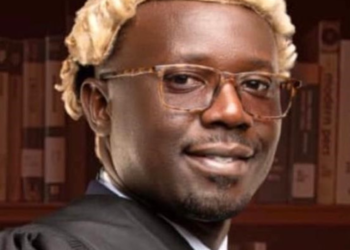The accidental presidency: Zambia’s unbroken cycle of unchosen leaders
By Dr Lawrence Mwelwa
SINCE the first sunrise of its independence in 1964, Zambia’s path to leadership has rarely followed a map drawn by vision. It has too often stumbled into presidencies, chosen not by deliberate conviction but by circumstance, accident, or compromise. Kenneth Kaunda, the founding father, was not the chosen one from a consensus of visionaries—he was the one available. During crucial independence talks in London, others were absent, and so Kaunda, by the virtue of his presence and commitment, was ushered into leadership. His presidency set the foundation, but his failure to groom a successor planted the seeds of instability that would sprout later.
When the tide of multiparty democracy swelled in 1991, it was not with meticulous planning that Frederick Chiluba emerged. Among seasoned political minds like Akashambatwa Mbikusita-Lewanika and Arthur Wina, it was Chiluba—a trade unionist, a fiery speaker, a symbol of worker struggle—who was thrust forward. He was the only one perceived capable of challenging Kaunda’s long-standing grip. In that moment, he became Zambia’s only truly preferred president—a man who captured the spirit of the times across provinces, a man of the people.
Yet Chiluba too would falter at the threshold of succession. His endorsement of Levy Mwanawasa was met with skepticism even within his party. Mwanawasa had once resigned from politics and returned quietly. He wasn’t groomed, nor was he widely accepted. His rise was orchestrated from behind the curtain. And when Mwanawasa died in office, it was Rupiah Banda—his Vice President, positioned conveniently near the seat of power—who stepped in, not because he had a vision, but because he was already there.
Then came Michael Sata, a man whose populist fire was matched only by his defiance. The people were tired—of MMD’s promises, of half-truths and deferred development. Sata rose not only by design but by a confluence of anger and hope. His presidency reawakened faith, but it too ended abruptly. Edgar Lungu, like Banda before him, was not groomed—he was close, he was convenient, and he was chosen in haste.
In 2021, Zambia once again voted for change. But it was not so much an embrace of the UPND’s promise, as it was a rejection of the PF’s failures. Hakainde Hichilema became president not because his roadmap had been tested and accepted, but because he was the best opposition figure standing. Once more, Zambia found itself led by someone chosen more in protest than in purpose. Today, the disillusionment has returned. The same stories play out—opposition weakened by lawsuits, leaders entangled in courts, the Constitution stretched and bent for survival, not service.
From Kaunda to Hichilema, Zambia’s politics echo an African proverb: “When the roots are forgotten, the tree falls in a storm.” We have forgotten the roots of leadership—not who is available or who is loudest, but who carries the vision to lift a nation and the humility to serve it. We have failed to build systems that nurture, test, and refine future leaders before we need them. We do not groom; we gamble. We do not elect from vision; we choose from noise.
So here we stand, again at the edge of another electoral cycle. The opposition is fractured, often louder in complaint than in clarity. The ruling party is entangled in the politics of power preservation, not transformation. In this darkness, new movements are rising—some born of frustration, others of ideology—but none yet fully carrying a national dream sculpted in detail.
The question before us is urgent and sobering: will Zambia once again find herself with an accidental president, a government stumbled upon rather than sought with conviction? Or will the nation, for once, pause and choose deliberately—a leader with a vision grounded in reality, a roadmap charted in service, and a heart that listens before it leads? The answer will not come from luck or anger, but from wisdom, patience, and unity—a nation finally ready to write its own story, not repeat old ones.

























